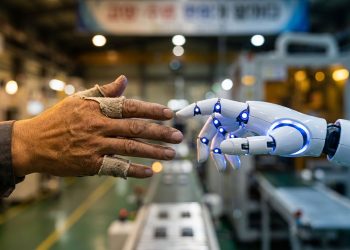The Ministry of Science and ICT of South Korea has recently announced that the international event ‘Quantum Korea 2023’ is set to take place in Seoul from June 26th to 29th. This prestigious event aims to showcase the latest global trends in quantum technology innovation and ecosystem development. It will bring together leading scholars and companies in the field of quantum technology.
According to Yonhap News Agency, the Ministry of Science and ICT plans to unveil Korea’s national quantum vision and development roadmap at Quantum Korea 2023. The event will also include an award ceremony for the University Student Quantum Information Contest, aimed at nurturing young quantum enthusiasts. Domestic and international companies, along with research institutes, are eager to participate by setting up booths, delivering presentations, and engaging in business meetings.
The primary objective of Quantum Korea 2023 is to commemorate Korea’s significant progress in quantum advancements over the past year. The success of the event will foster the widespread adoption and understanding of quantum technology within Korea.
The event will feature renowned experts such as Nobel Prize-winning physicist John F. Clauser, MIT Professor Peter Shore, and IBM Research Fellow Charles Bennett. Additionally, esteemed Korean experts in quantum technology, such as computer science professor Lee Jae-jin, senior researcher Hwang Yong-soo, and Dr. Ryu Hoon, will also be in attendance.
South Korea’s $2.6 billion quantum vision for 2035
Recognizing the transformative potential of quantum technology, the South Korean government has made substantial commitments to support the growth of the quantum industry. Recently, they revealed a significant investment of $2.6 billion for the development of quantum science and technology by 2035. Moreover, they have established partnerships with major Korean companies such as Samsung Electronics, Hyundai Motor, SK Telecom, and LG Electronics, all of whom have been actively exploring the quantum field.
Korea aims to increase its global market share in quantum technology from the current 1.8% to an ambitious 7.3%. To achieve this goal, the country plans to nurture approximately 2000 research talents. It also plans to facilitate the growth of more than 100 quantum startups by 2035.
The Ministry of Science and ICT emphasizes the importance of public-private cooperation, given that the commercial implementation of quantum vision and technologies is still in its early stages. The Korean private sector has already demonstrated notable progress in developing proprietary quantum technologies.
For example, Hyundai Motor has utilized quantum computing to explore cost-effective alternatives to platinum for hydrogen fuel cell catalysts. Similarly, SK Telecom has developed a quantum random number generator (QRNG) chip. Whereas, POSCO, a prominent steel company, and LG Electronics have also integrated quantum technology into their research.
Looking ahead, the Korean government has set ambitious targets for quantum technology. They aim to build 1,000-qubit quantum computers within the next seven years. The government is actively working to establish a nationwide quantum communications network by commercializing the quantum internet. Furthermore, their plans include progressively integrating quantum sensing technologies into critical sectors such as biotech and defence by 2035. These strategic initiatives reflect Korea’s commitment to harnessing the immense potential of quantum technology and driving innovation across multiple industries.







